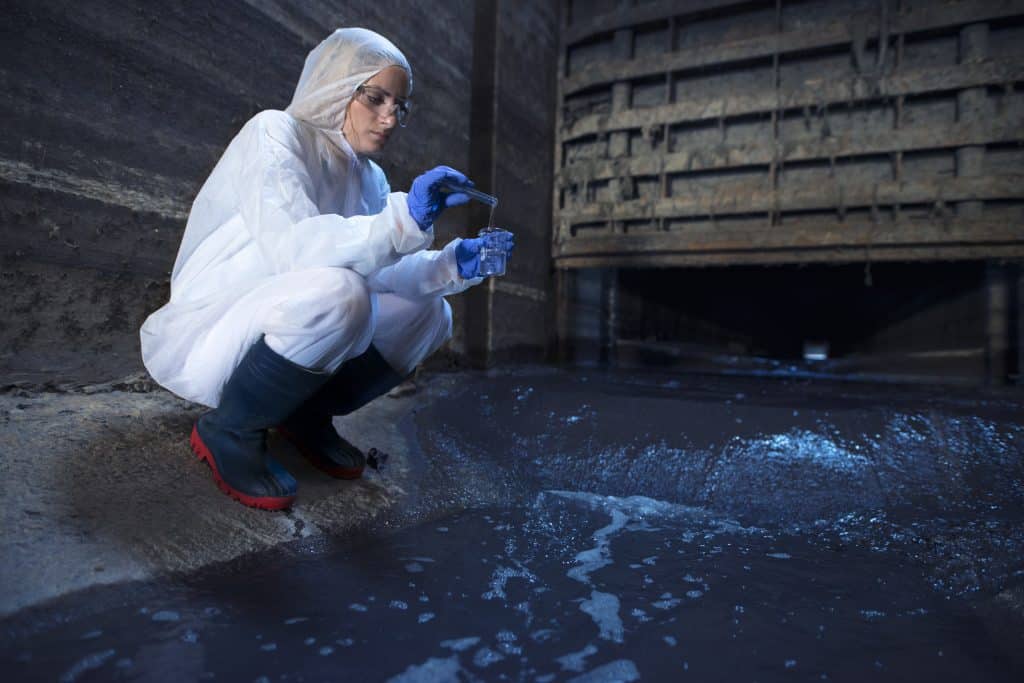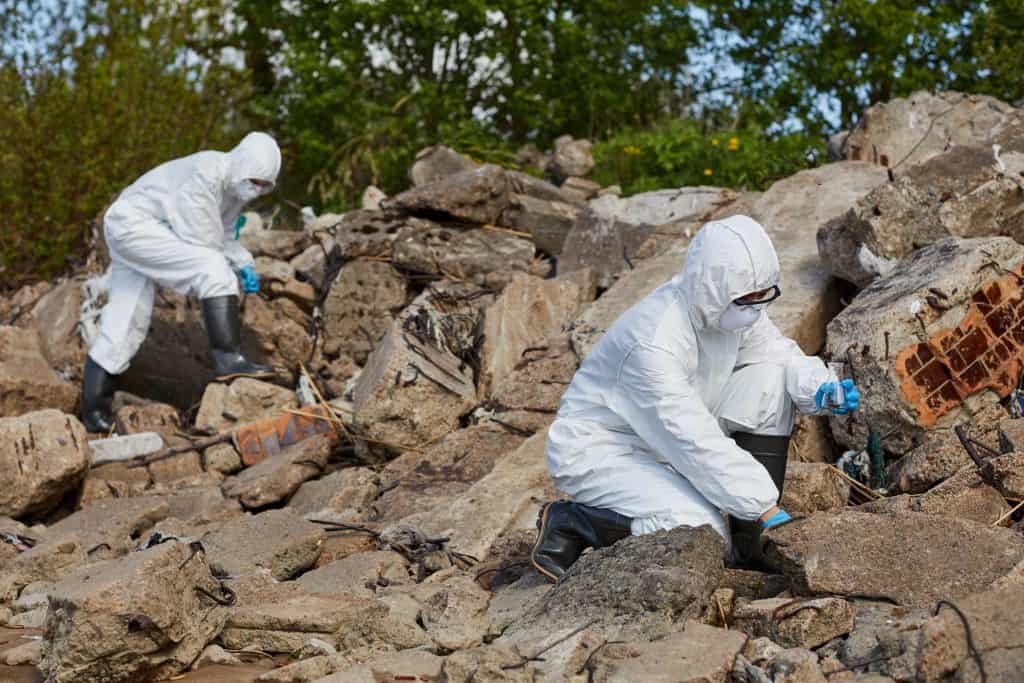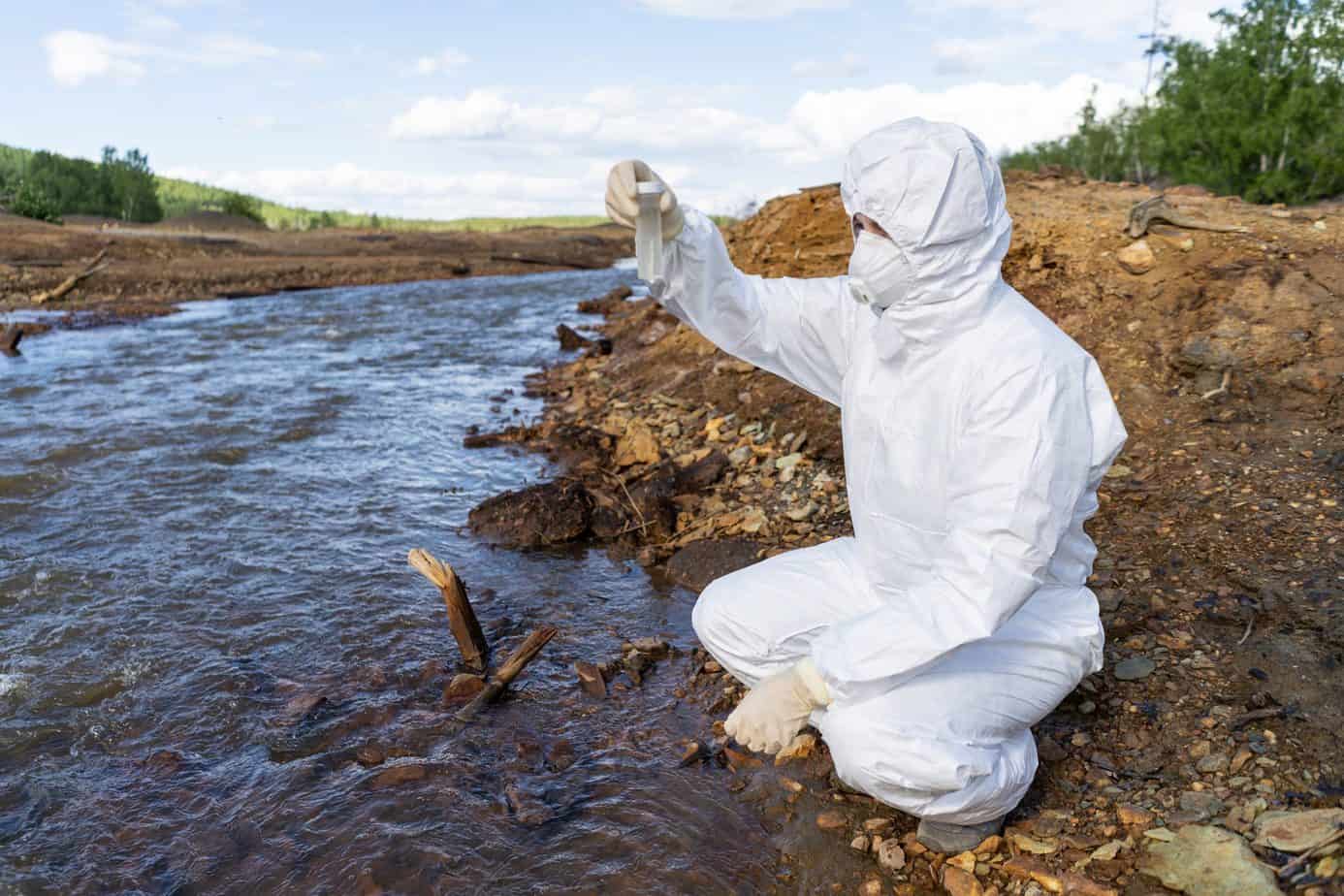Introduction
Civil engineering is a broad discipline, and civil engineering students can specialize in various subdisciplines, such as environmental engineering, transportation engineering, construction engineering, water resources engineering, municipal engineering, and many others. If you are a civil engineer or are pursuing a civil engineering degree, you can explore different fields of study and careers.
The article provides valuable information to engineering graduates and civil engineers about different career options in civil engineering, focusing on the environmental engineering services field. We will also discuss typical work involved in environmental engineering services, the career and salary growth of environmental engineers, and answer some frequently asked questions about the field.
Typical Work in the Environmental Engineering Services

The environmental engineering work usually includes the following activities or services:
- Developing and upgrading infrastructure for water resources, building solid and liquid waste treatment facilities, designing geotechnical designs for identifying and rectifying hazardous materials from underground water and other natural resources.
- Groundwater and soil testing, surface water testing, environmental regulatory compliance services, industrial waste management, environmental audits, special drainage permits, and other related activities.
Employers Who Hire Environmental Engineers
Environmental engineers work in government and non-government organizations involved in a variety of tasks. Mostly, environmental engineers are hired by the following organizations:
- Clean energy producers
- Engineering services providers
- Construction companies
- Infrastructure consulting firms
- Design & consultancy firms
- Environmental consultancy firms
- Government environment protection agencies
- Waste treatment companies
- Water supply and infrastructure development companies
- Environmental regulatory compliance service providers
Typical Job Duties of Environment Engineers

- Inspections of worksites to ensure that the environmental regulations are being followed.
- Propose remedial measures to correct deviations from environmental regulations.
- Set up projects for the conservation of the environment.
- Guide organizations about the safe treatment of industrial waste.
- Coordinate with government regulatory agencies on matters related to environment protection.
- Carry out studies for determining the environmental impact of proposed construction projects.
- Create processes and mechanisms for controlling pollution resulting from the organization’s operations.
- Work and negotiate with different regulatory agencies to get environmental permits for organizations.
Career and Salary Growth
According to the Bureau of Labour and Statistics (BLS), the median annual pay of environmental engineers in 2020 was $92,120 with an hourly rate of $44.29. As per the BLS website, around 52,000 professionals are employed in the industry as of 2020 in the United States, and the new job openings are expected to rise annually by 4% from 2020 to 2030. It is likely that around 4,000 employment opportunities for environmental engineers will be available each year in the current decade.
Environmental engineering professionals can assume various roles in an organization, such as environmental consultant, waste treatment engineer, environmental engineer, geotechnical engineer, environmental product compliance engineer, environmental sustainability engineer, environmental project development engineer, and other similar positions.
Degree Requirements for Environmental Engineering Service
You can enter the environmental engineering service field by acquiring any of the following types of degrees:
1- Associate’s Degree: The easiest route to enter the environmental engineering service field is to undertake a two-year associate’s degree in environmental engineering. Even if you have an associate’s degree in Applied Sciences, you can still be hired in an environmental engineering firm where you can assist certified environmental engineers and work under their supervision. An associate’s degree might get you an entry-level job in the industry. But if you want to excel in the field, you need to attain higher qualifications.
2- Bachelor’s Degree: Most environmental engineering service jobs require you to have a 4-year bachelor’s degree in environmental engineering or a related field. Some employers even accept Bachelor of Science or Bachelor of Engineering degrees in civil engineering, mechanical engineering, and chemical engineering. If you want to increase your chances of being hired as an environmental engineer, you should at least acquire a bachelor’s degree in the field.
3- Master’s Degree: Employers like to hire candidates with a higher degree of education in the relevant field. So a master’s degree in environmental science or environmental engineering can significantly improve your chances of getting hired in an environmental engineering firm. Master’s degree-holders study specialized areas in the field of environmental science, such as waste management, water treatment, etc. which gives them an edge over candidates with only bachelor’s or associate’s degrees.
4- Doctoral Degree: A doctoral degree in the environmental engineering field further advances your knowledge and can land you a higher paying job in the industry. Because a doctoral degree equips you with specialized and in-depth knowledge about the industry, you can also attain higher positions in a company’s hierarchy. Environmental engineering consulting companies often hire doctoral degree holders as consultants who provide advisory services to clients.
5- Online Degree: Some universities also offer online degrees and certifications in environmental engineering, which you can consider if you want to attain the degree or certificate by learning at your own pace. You can explore degrees and certifications related to environmental engineering on educational websites, such as Coursera and EdX.
6- Certification: Another excellent option to enter the field of environmental engineering is to earn a professional certificate from the American Academy of Environmental Engineers and Scientists (AAEES). You can specialize in any of the following areas of environmental engineering areas:
- Air Pollution Control
- Environmental Sustainability
- General Environmental Engineering
- Hazardous Waste Management and Site Remediation
- Industrial Hygiene Engineering
- Radiation Protection Engineering
- Solid Waste Management
- Water Supply/Wastewater Engineering
Getting the AAEES certification demonstrates that you know the latest industry knowledge about environmental engineering and, therefore, can attain a higher salary and position in a company. However, there are specific eligibility requirements that you need to fulfill before you can become eligible to take the exams.
Prerequisites for Getting a degree in Environmental Engineering
If you want to get a bachelor’s degree in environmental engineering, most universities require you to have passed secondary or high school examinations. If you’re going to enter into the environmental engineering services field, you need to get a bachelor’s degree in the area to build your foundations from the start. Later, a master’s degree would further solidify your understanding, which will help you perform much better in your master’s program.
To get a master’s degree in environmental engineering, different universities have different requirements. However, at minimum, you must have a bachelor’s degree in STEM (Science, Technology, Engineering, or Mathematics) or a related field.
To get admission into a doctoral environmental engineering degree program, you need to have a master’s degree in the field. Some universities have additional eligibility requirements, which you need to check on the university’s website to get a better idea.
Skills & Competencies Required For Environmental Engineering Service
Being an environmental engineering professional requires you to have some vital skills and competencies that will help you in performing your day-to-day tasks effectively. Here are some of the skills you must have to be a successful environmental engineer:
Interpersonal skills: As an environmental engineer, you will be meeting with several internal and external stakeholders to discuss complex concepts. So, your communication and interpersonal skills should be top-notch. You must be able to explain your proposals in an easy-to-understand language while also listening to and understanding your counterpart’s arguments. These skills would help you in advancing your career and you would feel comfortable and confident even in the most challenging meetings.

Analytical skills: An environmental engineer frequently faces new challenges and complex scenarios. To successfully deal with the challenges, an environmental engineer uses his analytical skills to understand the problem and arrive at a workable solution. Analytical skills allow a person to foresee what solution is most likely to work in a given scenario, which makes solving complicated problems more straightforward and quicker.
Writing skills: An environmental engineer has to frequently write reports, projects, and proposals, which are used internally and externally by different stakeholders. Various strategic decisions are based on the reports written by environmental engineers, so the writing skills of an environmental engineer must be immaculate.
Trouble-shooting skills: Environmental engineers are hired to solve tricky situations involving large projects with different environmental repercussions. In such cases, engineers use their trouble-shooting skills and their past experiences to successfully navigate the challenges. This involves presenting alternate solutions to the problems and selecting the best one.
Imaginative skills: Environmental engineers design concepts and models to solve problems, which requires excellent creative skills. They visualize detailed concepts in their minds and cast them on the computer screen or paper, giving abstract visualizations a physical shape. Having imaginative skills can make the tasks of environmental engineers easy as they can quickly turn theoretical concepts into reality with their imaginative skills.
FAQs
What are environmental engineering services?
Various organizations are operating in the field of environmental engineering services, offering their services related to environmental protection such as hydro-geological assessments, site decontamination activities, regulatory compliance consultancy services, waste treatment services, and others. Industrial organizations require different types of environmental engineering services, depending on the nature of their activities. For example, an oil exploration company might require the services of environmental engineering companies to decontaminate the site after it closes a drilled site. Some organizations need to conduct environmental impact surveys before undertaking large projects, for which they need services of environmental engineering firms.
What do environmental engineers do?
The job roles of environmental engineers include a variety of specialized tasks but also depend on the business model and operational activities of the hiring company. Typically, environmental engineers are expected to do the following:
- Identify and mitigate environmental risks
- Monitor the latest developments, trends, and changes in environmental regulations, laws, rules, and compliance requirements.
- Communicate with external stakeholders, such as inquiries and audits from relevant regulatory bodies, such as the Environmental Protection Agency (EPA), Certified Unified Program Agencies (CUPAs), and Department of Toxic Substances Control (DTSC).
- Prepare Operation and Maintenance Plans (OEM) in collaboration with environmental technicians.
- Conduct environmental investigations at sites for contamination to ensure safe air quality and work environment.
- Oversee site clean up and construction activities at site to avoid harmful environmental impacts.
- Design and implement remediation systems.
- Other tasks peculiar to the nature of the organization’s business or activities.
What is an environmental engineering consulting?
Environmental engineering consulting refers to individuals or firms that provide consultancy services regarding complex environmental engineering matters. They use their vast experience of environmental engineering projects to give their expert advice on executing sophisticated and capital-intensive projects. These professionals can help organizations in environmental audits, regulatory compliance, identifying chemical and biological hazards, environmental impact studies, waste management solutions, remediation activities, and other related activities.
Environment engineering consultants can provide their services in different areas, including civil works, construction industry, private and public enterprises, regulatory bodies, energy companies, and others.
What is the role of an environmental engineer in society?
Environmental engineers play a productive role in society as they help organizations set up environment-friendly projects and reduce damage to the environment. Governments all over the world are taking steps to compel industrial organizations to meet the environmental protection standards, and environmental engineers contribute their part in helping governments and organizations achieve the goal of a cleaner environment.
Their activities directly help the society in general because of their work in reducing air pollution control, ensuring industrial hygiene, protecting workers from harmful industrial radiation, treating hazardous and toxic waste, recycling to reduce waste, supplying clean water, managing stormwater, and other similar activities.
Conclusion
Environmental engineering is a vast field that coincides with the skillset of civil engineers. Government and big companies hire environmental engineers to perform specialized tasks related to environmental aspects of the organization’s activities. As of 2020, the annual median pay of environmental engineers as per the Bureau of Labor Statistics is higher than that of civil engineers ($92,120 vs. $88,570). The pay can be significantly higher depending on your experience in handling specialized and complex environment-related projects. If you are already in the engineering field of study, you can consider moving into the environmental engineering services career because of the specialized and environment-friendly activities you would be performing in your role.
